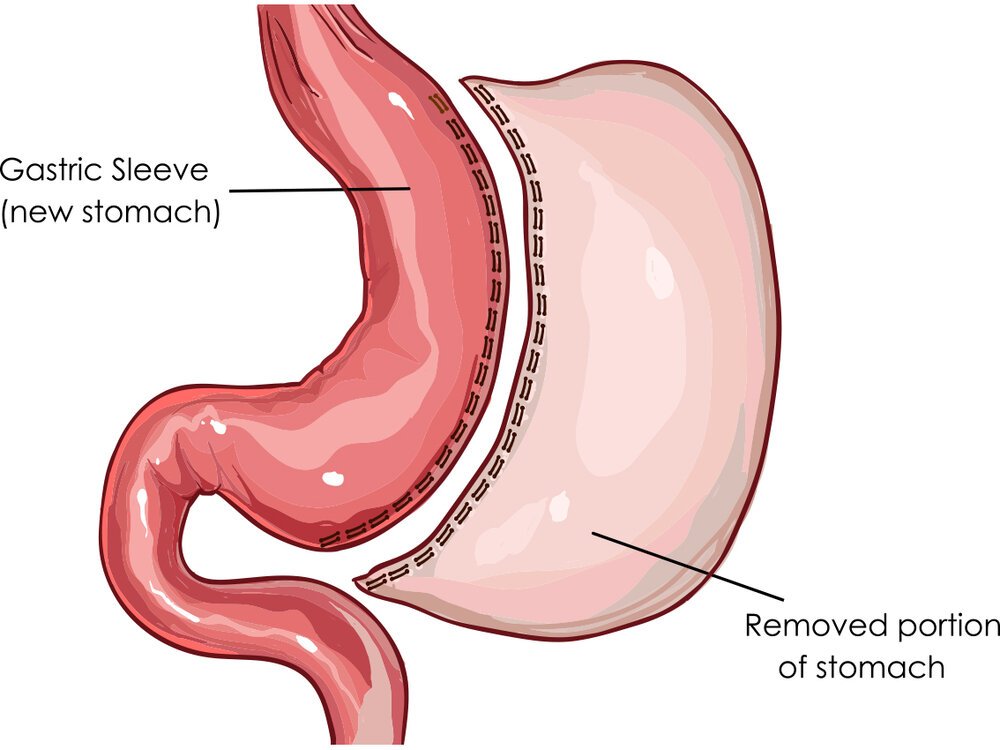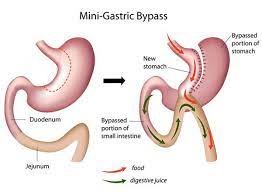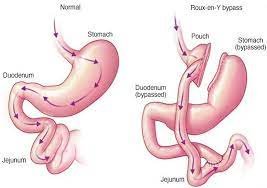Bariatric surgery, or weight loss surgery, such as sleeve gastrectomy and gastric by-pass are rapidly growing procedures in Australia assisting people achieve significant weight loss and often improving the management of obesity related diseases such as diabetes, hypertension and sleep apnea.
Weight loss surgery in itself does not ensure weight loss results, but can be used as a tool to reduce food portion sizes along with important dietary and lifestyle changes and regular physical activity. Weight loss success will be seen in people who also take personal responsibility for making healthy lifestyle and dietary choices. Choosing high-energy foods and drinks, as well as regular snacking will hinder any weight loss progress and can lead to weight regain.
The gastric sleeve promotes weight loss through reducing the stomach capacity to hold food as approximately 80% of the stomach is permanently removed. A smaller stomach ideally results in reduced food and calorie intake while people still feel satisfied consuming smaller portions.
In addition, the sleeve surgery removes the part of the stomach that secretes the hormone ghrelin. Ghrelin is an appetite stimulant and the reduction of this hormone further helps to reduce hunger.
Surgeries such as the Roux-en-Y gastric bypass involve stapling the top of the stomach to form a small pouch totally seperate from the stomach and then connecting this small pouch further down the small intestine. The volume of the new ‘stomach’ is reduced leading to smaller portions and hormonal changes that reduce appetite helping you feel satisfied.
The one anastomosis gastric bypass (or mini-bypass) is another procedure where a smaller stomach pouch is formed and attached further down to the small intestine. The main difference between the two bypass procedures is that the roux-en-y involves two connections and the mini-bypass has only one.
With both surgeries the most rapid weight loss occurs in the first 6 months post-op. Also with both surgeries you will be eating less so to ensure you are receiving all the vitamins and minerals you need to keep healthy , it is important to choose healthy nutritious foods. To prevent deficiency you will also be encouraged to take daily multi-vitamin and minerals supplements life-long.
Many studies have shown that the people most successful at losing the weight and keeping it off have made significant dietary changes, participate in regular physical activity and have regular contact with support networks such as dietitians and psychologists.
Preparing for weight loss surgery.
Prior to surgery you will be required to follow a Very Low Calorie Diet (VLCD) in order to prepare your body. This may be done using meal replacement products such as Optifast or you may use a specific VLCD diet using a strict meal plan. These diets are designed to force your body into ketosis, or the process of using fat stores as energy, by restricting the amount of calories your body normally obtains from foods such as sugars and carbohydrates.
When following a very low calorie diet your body will use fat stores, such as those found around the liver and stomach. Reducing the fat around the stomach and liver makes the surgery easier and safer. Weight loss prior to surgery has also be shown to improve recovery time, improve mobility after surgery and help to manage other co-morbidities such as diabetes and hypertension.



